
Future-proofing your EU funding strategy for the post-2027 period
Preparing for EU funding for the post-2027 period? Learn what organisations can do now to align with policy shifts, build partnerships and strengthen readiness.
It is a rather common view that small organisations wouldn’t need to bother to try to get EU funding. Confronted with a lack of time and resources, many small organisations fear that too many and too complicated requirements would have to be met. Is this really always the case? Let’s dive a bit deeper into this thematic and I’m giving you 5 reasons why EU funding could be worth a try, which minimum conditions should be fulfilled and how the perceived overwhelm could be lifted.
Before going deeper into why EU funding could be for you, let’s define what a “smaller” organisation would be in the context of this article. In order to have the capacity to carry out a project, you would need to have one or more core activities you are conducting on a regular basis, as well as a certain level of expertise in your thematic field. Honestly speaking, if you have less than a handful of full time staff, it could indeed be very difficult to apply for and manage a EU funded project. And the question is if there is actually sufficient expertise in your organisation (for example, what if that “only one real expert” you have on that particular topic would leave your organisation?).
If you pass a certain threshold, EU funding may well be interesting to look into. I cannot state an exact figure here when ”small” would be “too small”. This would mainly depend on your internal set-up, division of responsibilities and level of expert knowledge in your particular thematic field. Plus, this would depend on the specifications of relevant Calls for Proposals which are currently open for applications. Nonetheless, I do know NGOs with 5-6 employees that successfully implemented EU funded grants.
I’ve always found it unfortunate to see that promising project ideas could not be realised due to a lack of funding. Although it may not be an easy task to acquire EU funding, it is certainly not impossible and it can involve so many advantages (beyond the money ;)) you may not have thought of.
Smaller – and medium sized – organisations or entities, be it an NGO or a company or public authority, often have good ideas which additional and/or innovative activities could be realised in their field. They are thinking “what if” there could be the necessary financial support to achieve much more for the community they are serving.
Funding for projects or general operations are then mostly sought at the local or regional level, and that is in general a good approach, as certain local oriented projects may serve a rather targeted local benefit and would not be eligible for EU funds. However, depending on the exact purpose and scope of a new project idea, there could be more funding opportunities at the table. This is especially the case for projects with an European dimension, projects that benefit from a cooperation with partners in other countries and/ or which can be replicated in other EU countries as a best practice.
When you are scouting for funding opportunities and prepare an actual EU grant application, you can see this process as a learning opportunity, as an investment to acquire new skills. Even if your proposal didn’t get the grant in the end, you will still receive some feedback from the evaluators which can help you to make your next application better and successful.
Still, I recommend to apply only if you really fulfil the Call requirements and when there is an actual chance of winning the grant, otherwise it would become a rather theoretical exercise. If you were not eligible to participate in the Call and do not fulfil the basic conditions, you may not even receive feedback from the evaluation as ineligible proposals will not be looked at any further. Once you start discovering and applying for EU funding you will learn how it works and that will make it easier for subsequent project applications.
And, once you’ve won a grant and are managing a project, there are even more benefits than being able to implement your new project. Once you are managing the project and get familiar with the reporting requirements, then subsequent projects will become easier too.
When you have obtained EU funding, the work on it will be paid for, so the calculated staff effort (according to the funding rate for the reimbursable costs in the approved grant agreement) for coordinating and carrying out the project will be financed by the EU. In concrete, when one or several persons will be (partially) occupied with the new project, their pro-rata salary and related costs (or a percentage of it, depending on the grant) will be reimbursed by the EU – so that means that for the other work these persons usually did, a replacement can be hired with the then freed up budget.
Most EU funded projects are implemented within an international consortium of several partners in different countries. This gives you the opportunity to learn from each other. For example, if you work in the field of health care, then you’ll perhaps exchange your experiences what works well in your and in the other participants’ countries, or what doesn’t work well and why and what could be done about it. Or you may see how other organisations in Europe approach certain problems in your field and you work together on how to improve the situation. You get inspired and also have the opportunity to bring value to the consortium by adding your own particular expertise.
The participation in a EU funded project will also enhance your contact database. When you are working together in a project, you will get to know other organisations in Europe and maybe also in your own country. In the course of the project, you will know how the partner organisations work, and if the cooperation is good you’ll know that you can trust their expertise. You will have built up personal contacts and if, in the future, you would like to ask or discuss something specific you know who to speak to. Your project partners can be contacts for future projects, for more EU projects or for other types of projects as well, or you may find other ways of cooperating and supporting each other in the future, possibly even on a more permanent basis.
You don’t have to start applying for a grant without any help or assistance. There are already some useful resources out there to help you apply for a grant. You can get all kinds of information from different sources which give valuable tips, e.g. from the European Commission on the programme websites, or via National Contact Points for a variety of programmes, for example for Horizon Europe (the EU Research and Innovation programme), the EU Environment and Climate Action Programme (LIFE) or the Citizens, Equality, Rights and Values Programme (CERV).
Sometimes information sessions are organised by the European Commission, their Executive Agencies (which are mandated with the project selection and the management of grants) and the National Contact Points in your country and are free of charge. This is already a good starting point to get some general input and questions answered.
Possibly you may already have contacts with organisations that already received EU funding and they could be willing to answer a few of your questions. Or you could get structured support to help you every step along the way or some punctual professional support by an expert in the field.
In the course of my professional life I’ve been working with many smaller or medium sized organisations, for example NGOs who are active on the national level, or local authorities which came to Brussels to be informed about funding opportunities for them. Many of them had some project ideas or particular needs to carry out certain activities. But they either didn’t know where to start looking for EU funding in the first place, or they didn’t go through to the next step – applying for grants. Sometimes there were just not the right Calls for Proposals open where their idea would have fit into, but more often than that organisations or entities dreaded the efforts that applying, managing and reporting on a project might entail.
First steps to explore EU funding for your project:
Don’t get immediately discouraged by the complexity of EU grant applications. The efforts vary according to the individual programmes and their Calls for Proposal. As a rule of thumb, the smaller the project and the less partners are in a consortium, the easier the application process should be (and the implementation of the project later-on). Often these smaller projects are exactly the most suitable for a smaller organisation. Also, bear in mind that there are some support structures available that help you to apply successfully. And, at the start you could try to be a partner within a consortium so that application and reporting efforts are reduced. However, there’s nothing wrong with starting to take such tasks on and have an even bigger potential to learn.
And, most importantly, EU grants may be a way to get your project idea funded and to achieve real results for your organisation and especially for the project beneficiaries and your organisation’s target group.
—
Are you a small or medium sized organisation and have experience with EU grants? Share your experience in the comments.
—
Ready to take the next step? Discover the compact online course “Kickstart Your EU Funding Journey – Get Ready to Access EU Project Funding”

Author: Astrid Mechel
https://eufundingconsulting.eu
Hello, I am Astrid Mechel and I work (for the most part) with small and medium sized organisations who aim to access EU funding. It is my goal to help discovering suitable EU project funding possibilities and to provide support to submit a high-quality grant application. My main thematic focus is on grants for research and innovation, environmental sustainability as well as on social inclusion and participation.
Read more articles here:

Preparing for EU funding for the post-2027 period? Learn what organisations can do now to align with policy shifts, build partnerships and strengthen readiness.

EU project funding for nonprofits: Discover 6 misconceptions that hold organisations back and how to turn them into opportunities for growth and impact.

Applying for EU funding can be a complex and challenging. This article offers 12 practical tips to help you avoid the most common stumbling blocks.
Online Workshop
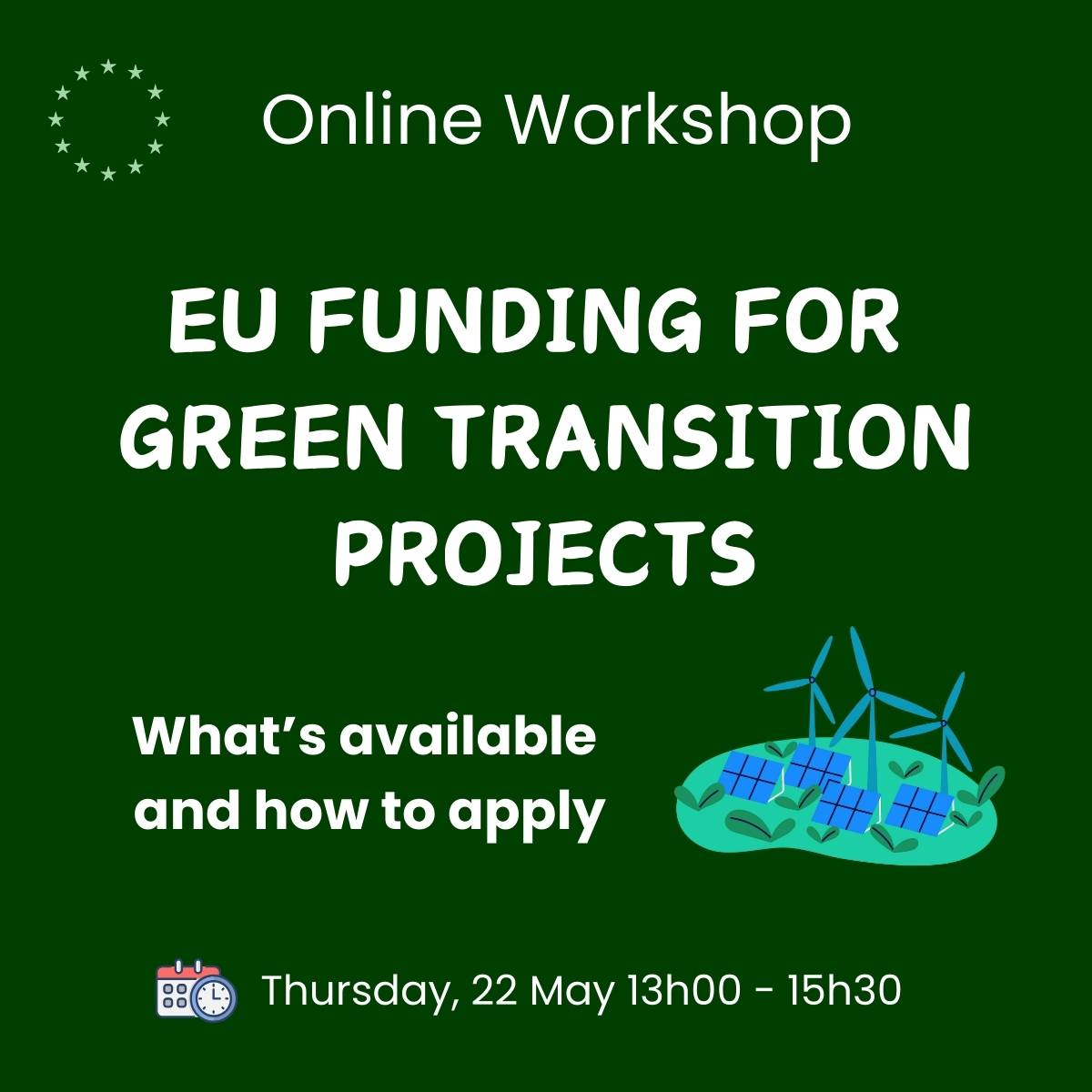
Interactive Live Workshop
On 22 May 2025 from 13h00-15h30
Registrations are closing soon
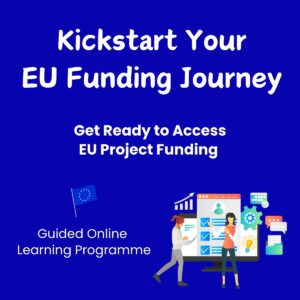
Curious about EU funding and how it could support your next project? Join the new live programme round for a compact and easy-to-follow way to get started with EU funding.
Key Terminologies – Application Guidance
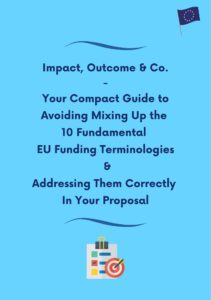
This guidance compares and compare and clarifies the 10 key terminologies within an EU funding application. How should you address them in your proposal, and what kind of information belongs to which one of them?
Online Workshop on 6 November!
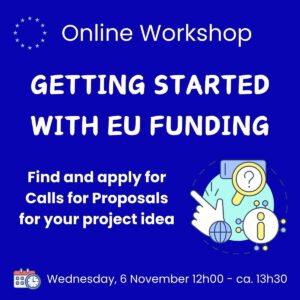
The workshop “Getting Started with EU Funding” is for participants with no or very limited experience in EU funding. Discover what kind of projects the EU is funding, the requirements and how you can apply for funding in your thematic field.
EU Funding Checklist
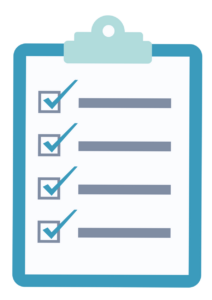
Do you have a new project idea and are wondering if EU funding could be available for your project?
This checklist will guide you through the most important questions to be considered when applying for EU project grants and includes some further suggestions how you could adapt your concept to be more in line with EU expectations regarding fundability.
Get the brand new upgraded guidance booklet (free offer):
Your compact guide on how they work and how your organisation can apply for funding
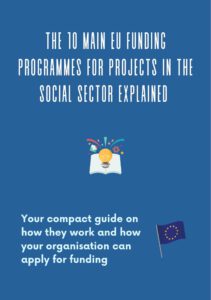
Find out which 10 EU programmes offer grants for projects in the social sector, what the conditions for funding are and how you can apply.
Online Workshop
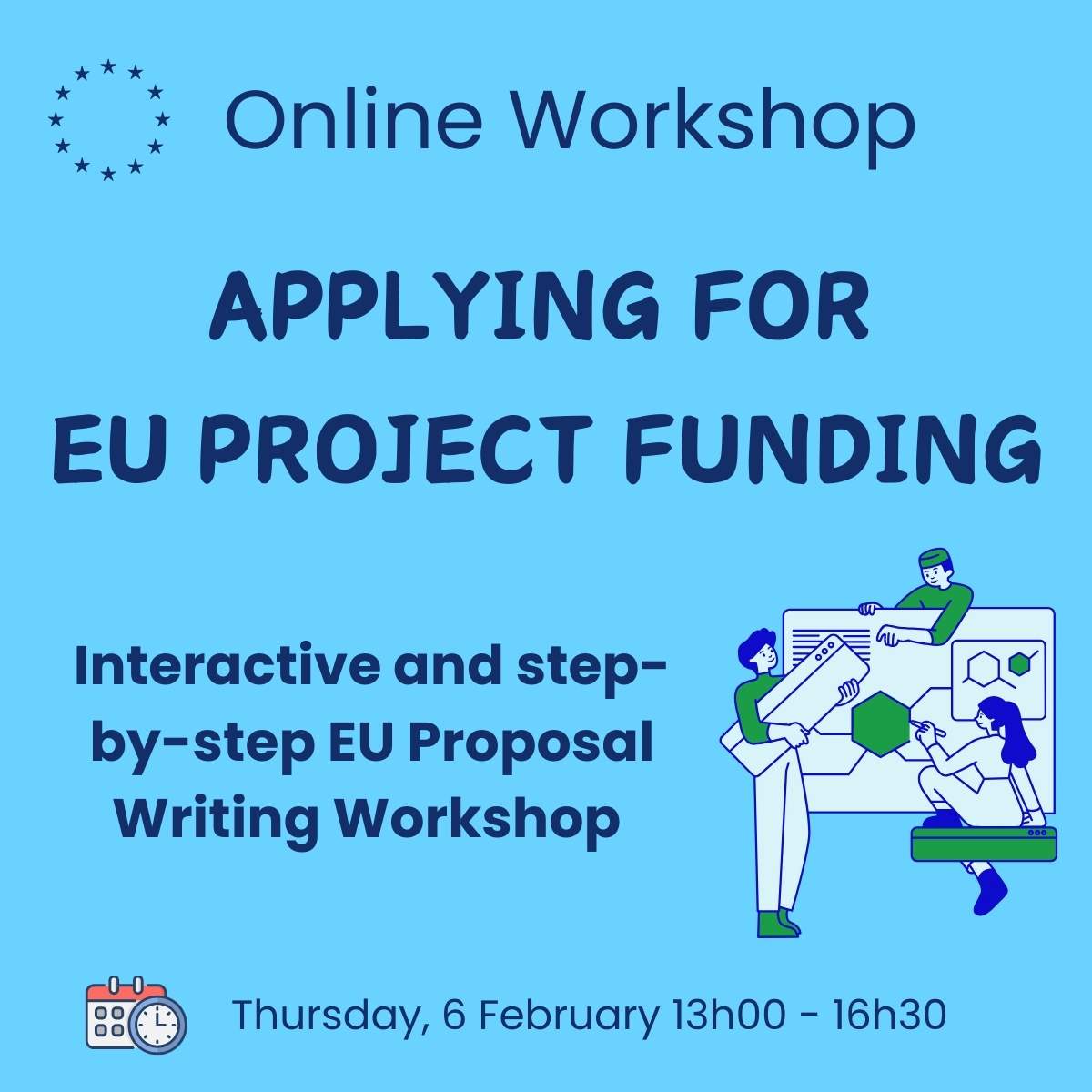
Interactive and step-by-step EU Proposal Writing Workshop
On 6 February 2025 from 13h00-16h30